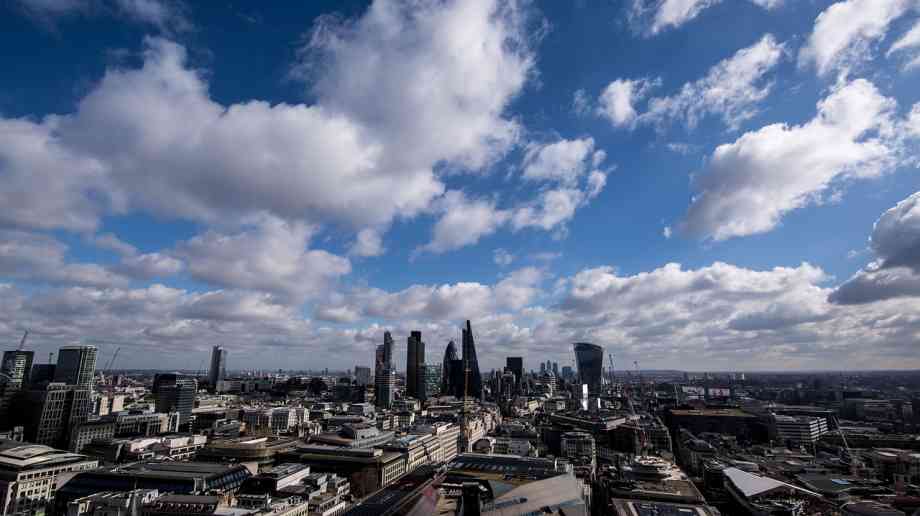Sue Robb of 4Children talks to Julie Laughton and Alison Britton from the Department for Education about the role of childminders in delivering the 30 hours free entitlement.
Cleaner air could boost economy by £1.6bn

A new study has revealed that three million working days are lost to air pollution, and that aligning to WHO air quality targets could boost UK economy by £1.6 billion each year.
The report by CBI Economics, commissioned by the Clean Air Fund, calculates the impact across the UK and examines four major cities in detail - with annual economic benefit estimated in London (£480 million), Birmingham (£25 million), Bristol (£7 million) and Manchester (£28 million).
The study, Breathing Life into the UK Economy, shows the vital importance of securing green and healthy growth. It claims that, for businesses, a loss of three million working days could be prevented every year from meeting the WHO’s guidelines, with workers currently becoming ill or having to take time off to care for sick children as a result of air pollution.
Additionally, reducing pollution to WHO levels could prevent 17,000 premature deaths each year of people of working age across the UK, who are dying nearly 12 years earlier than expected, on average.
The report is believed to be the first analysis of the economic benefits of reducing pollution levels such as nitrogen dioxide (NO2) and particulate matter (PM2.5) to what are considered ‘safe levels’. The WHO guidelines for PM2.5 (a form of microscopic pollution) are more than twice as stringent as UK legal levels. The analysis does not include potential wider benefits to the UK economy of meeting WHO air quality guidelines, including preventing early retirement, the benefit to the voluntary sectors or impacts on consumer behaviour, meaning this analysis is likely to be conservative.
The Clean Air Fund is urging the government to include a legally binding commitment to meet WHO air pollution standards by 2030 in the Environment Bill, which is due to be debated in Parliament in the autumn. Currently, the bill mentions ‘a target’ for PM2.5, but does not specify what that target will be, or when it will be met. Other pollutants, such as NO2, are not mentioned in the Environment Bill and the target for PM2.5 will only be presented to Parliament in October 2022.
Jane Burston, executive director of the Clean Air Fund, said: “We know clean air makes us healthier, but our research shows it can make us all wealthier too. If businesses and government work together to ensure clean air for all, we can protect our health and re-energise the economy at this critical time. Ministers must commit to binding targets to cut air pollution in line with WHO guidelines by 2030.”
Rain Newton-Smith, chief economist of the CBI, said: “The CBI is delighted to have been able to work on this important piece of research. Not only is there a clear moral responsibility to address air pollution and the impact it has on human health and the environment, there’s also a striking economic rationale. That is why the CBI has been absolutely clear that a focus on green recovery should be central to our Covid-19 response.
“From mass energy efficiency programmes to building new sustainable transport infrastructure, the green economy offers incredible opportunities for the UK. Improving air quality should be a key part of the UK’s journey to net zero. With air pollution hitting the balance sheets of businesses across the country, and cutting the earnings of their employees, cleaning up our air would help us to lead healthier and more productive lives, while delivering a green jobs boost for the economy.”
Company Focus
Located in Bromley, Japanese Knotweed Eradication Ltd has been providing solutions in the treatment and removal of Japanese Knotweed (Fallopia Japonica) for over a decade. During this time we have mastered a repertoire of methods, from herbicidal treatments to landscaping solutions, tailored to address the unique challenges our clients face with this pervasive weed.
Event Diary
UKREiiF has quickly become a must-attend in the industry calendar for Government departments and local authorities.
The multi-award-winning UK Construction Week (UKCW), is the UK’s biggest trade event for the built environment that connects the whole supply chain to be the catalyst for growth and positive change in the industry.
Supplier Profiles
Geo Energy
At GeoEnergy Design, we're on a mission to disrupt the traditional way heating and cooling ha
Latest Features
Professor Harith Alani, director of the Knowledge Management Institute at the Open University explains how AI can be used for good and bad.
Alex Lawrence, head of health & social care, techUK sets out techUK’s Five Point Plan for CareTech.

















